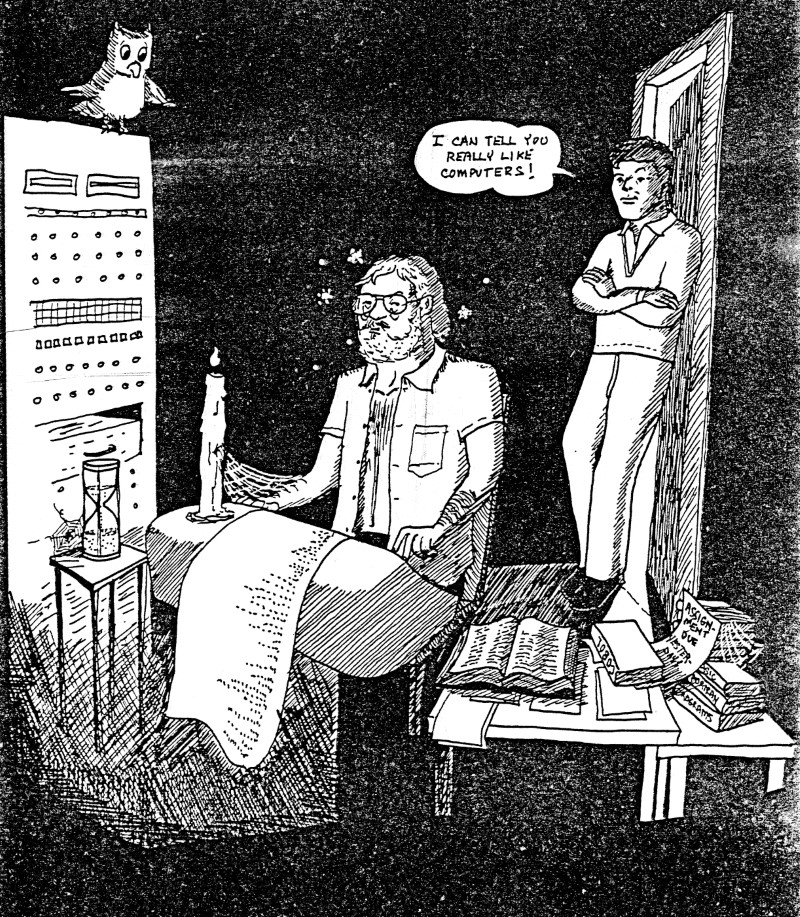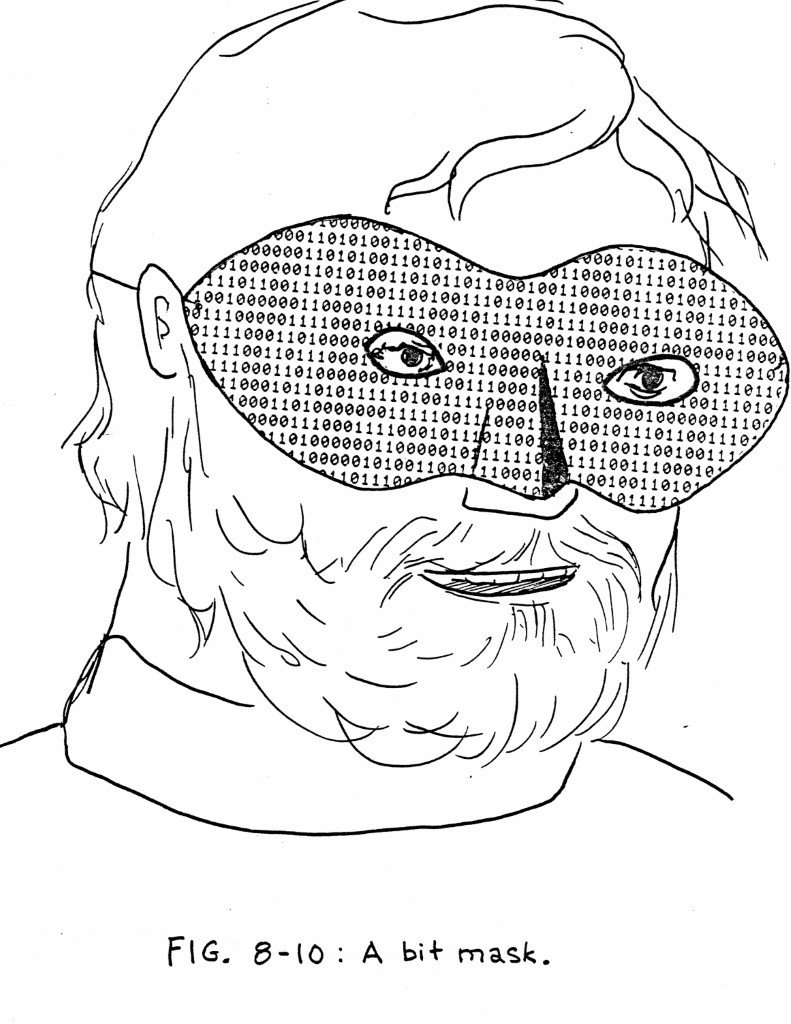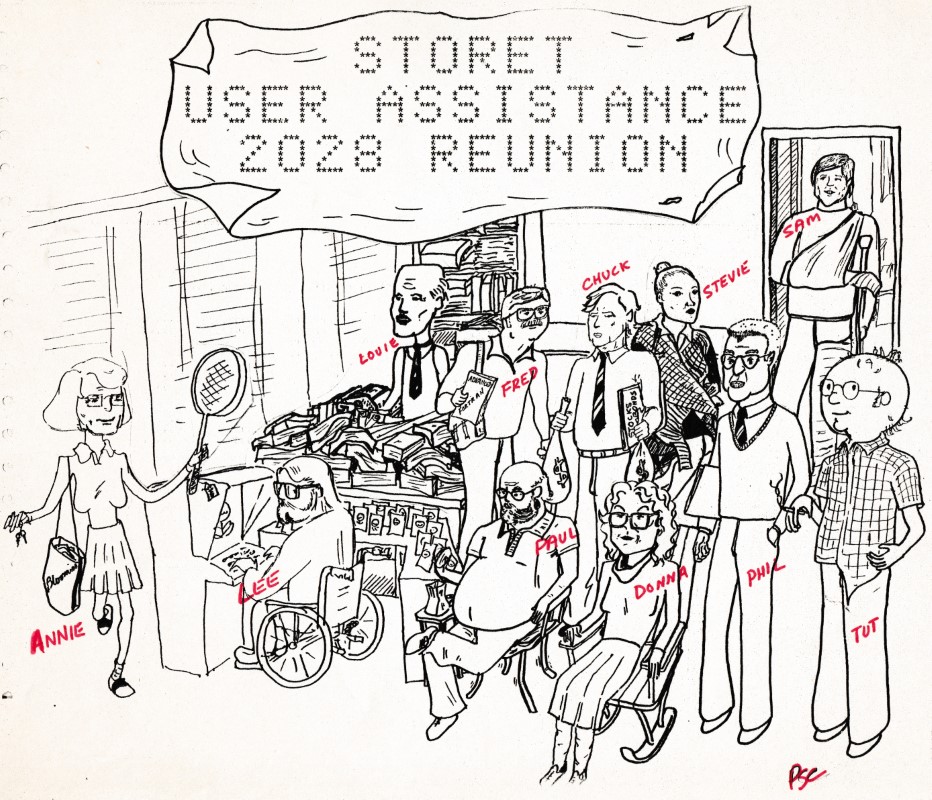| By: Paul S. Cilwa | Viewed: 4/19/2024 Occurred: 12/15/1978 Posted: 12/11/2019 |
Page Views: 1140 | |
| Topics: #Co-operativeEducationProgram #EnvironmentalProtextionAgency #UniversityofWestFlorida | |||
| This was my term paper for my first two co-operative education terms (spent with the EPA). | |||

I had never heard about the Cooperative Education Program until it was specifically brought to my attention by Dr. Miller, head of the Systems Science department of UWF, after he found me playing with the computer at school at 1:30 AM. Apparently he felt that indicated sufficient motivation on my part to allow me to pass as the complimentary co-op to Tommy DeWald, whom I had never met but who was described to me as "a straight-A student who will be very hard to replace." It seems that Tommy had originated the Co-op position he was in and that I was going to have to maintain his aura of excellence during the six months I would be taking his place in the STORET section of the Office of Water and Waste Management of the Environmental Protection Agency. After all, the Eyes of Federal Government would be upon me as well as those of my school; and I mustn't Let Anybody Down. Of course, it was added that I should relax and enjoy my Co-op experience. (At that point, telling me to relax was like telling someone not to perspire, but I suppose it's the thought that counts...)
That was six months ago, although it certainly doesn't seem that long. I am simply amazed at the quantity of knowledge I possess now that I did not possess when I first came up here. This knowledge not only includes material needed to function as a systems analyst, but random intellectual tidbits concerning government, politics, medicine, current events, history, mathematics, the CIA, living in a Big City and just exactly why a person should not walk home on a dark street twenty minutes past midnight.
Of course, the main thing I was here for was to work for and learn from the working on computers, or, more specifically, the computer used by STORET here at the EPA. Background information came quickly: STORET is a fifteen-year-old data managment system developed by Clarence ("Tut") Tutwiler, who also happens to be my supervisor. Tut was a chemical engineer who found himself creating STORET with little knowledge of how other people would handle the same job; thus he put into STORET an originality and flair that is fast disappearing from the ranks of systems scientists as the schools and less tolerant universities stamp out more and more programmed programmers. To give but one small example before I move on: STORET stations contain thousands of characters of information apiece; yet that much is rarely requested. There are many ways of plucking out from such a universe the bits of data you want; but Tut's method is, as far as we know, unique: each record includes a "mask" composed of a bit string of ones and zeroes. Your request for information includes its own mask; by putting the two together, only the station records you want are printed out for you, and the expense of choosing one record over another is practically nonexistant, especially by comparison to the more complex logical operations of other data managment systems.

Tut is always looking for ways to improve the system, too; conscious of the fact that the organizations using STORET are government agencies and as such need to economize as much as possible, he introduces new features to STORET to make it less expensive to run; yet these features are generally implementented in such a manner that the users, who are, in general, not computer people, will not notice the changes at all except, possibly, as reduced costs.
As the years have passed, the information entering the STORET system has become somewhat physically jumbled, although of course it retains its logical sequence. As long as records are requested one at a time, this poses no problem; for each record contains a pointer indicating where, physically, the next logical record can be found. However, it occurred to Tut that, since computer costs include a certain charge per "interrupt" (loading in of data blocks from a storage device), it would save money if the programs that obtain data could replace their one-at-a-time reading methods with one that would take in enormous blocks of data in a single interrupt and hold them, on the theory that, even if you don't request the next logical record next, you will probably want it eventually; and when you do, why, there it will be! This requires, however, that the data be physically as well as logically sequential… and that's where I came in.
My assignment was to write a subroutine to do this chain reading (or, more specifically, to call upon an already extant subroutine that does the reading) and to hold the data thus retrieved, returning it to the main program upon demand. Finishing that, I was to write the program that would read the data in the standard method, right where it is, and write it back onto some new disks in the new, physically sequential order. In years to come, when the data begins again to get tangled, my REORG—this time using my READER to get the data, since most of it will still be in order—will be used again, to neaten things up and help keep STORET usage economical.
Well, I did it. I came here after one course each of FORTRAN and COBOL, knowing no PL/1 (the language used here), no JCL (job control language, sort of), and having no concept of what it was I was supposed to do. Yet, as I write this, READER has been incorporated into the three programs that will use it; REORG is writing onto the first new disk, and people occasionally make use of command language procedures I wrote to help make our jobs a little easier and/or more fun. I have written JCL procedures, PL/1 functions, and assisted users calling in for ALPHA command language help.
In the process, I discovered that I do, indeed, like Systems Science—I was never sure, before. It's fun and challenging; and if the people in this office are any indication, my future co-workers will all be as zany as I am.
The question the Cooperative education office is always asking (I suppose since on the answer hangs the justification for its existance!) is: "Did you find a correlation between your work experience and school?"
Well, of course the question is entirely self-servinq, since the purpose of school is to prepare us for our future work experience! Nevertheless, I will answer the question: of course there was a correlation. There will always be. In my case, I didn't have nearly the knowledge I should have had when I came here; my apparent "knack" for programming and constant support from everyone here made up for that and I made it through the terms learning things that will make the courses I now have to take, a cinch to ace. On the other hand, a friend of mine—one of many UWF co-ops I first met in Washington—claimed that he could never have made it through his terms here without the courses I hadn't taken. For him came the knowledge that his scholastic courses were teaching him needed skills for his future career; for me came the knowledge necessary to pass those courses. A bit backwards, perhaps, but I haven't learned all there is to know and I'm sure those courses will still have plenty to offer.
But most meaningful of all, I think, is the fact that both I and my employer came out ahead. At least, I know I did; I gained thousands of dollars' worth of knowledge and experience and was paid for it. And I feel my employer did; they got programs that I, at least, think are efficient and useful, and they will be using them for years to come. And they got them for the salary of a GS-4! All in all, not a bad system.
And now it's time to go home, at least for six months. However, fast the time has flown! I've sampled much that the Big Cheese has to offer: museums, concerts, culture, muggings. I've met strangers who became acquaintances and acquantances who became close friends. I've worked at a job I enjoyed, as opposed to most of my previous jobs which just made me wish I were doing something—anything!—else.
Six months ago I had never heard of Co-ops or the Co-op program…
And now I are one.






